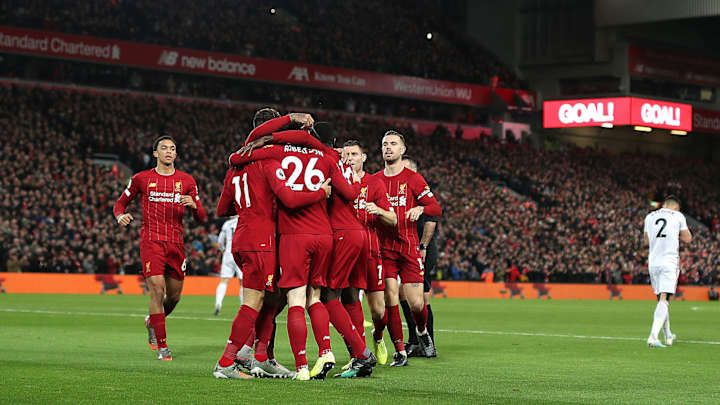Finishing Season a Clear Objective as England, Premier League Extend Coronavirus Shutdown

There will be no football in England until the beginning of May at the earliest. The announcement, in a joint statement from the Premier League, Football Association and English Football League came six days after an initial decision to suspend all leagues until April 3.
That initial date had always been seen as a placeholder while the severity of the coronavirus threat was assessed, and that no provisional date for a restart has been set this time seemed a tacit acknowledgement that the delay may go on much longer than that.
But perhaps the most significant part of the joint statement, which came after an emergency conference call with all 20 Premier League clubs, was the waiving of the stipulation that the season be finished by June 1, with the new limit "extended indefinitely." Although UEFA's statement on Tuesday indicated it still hoped seasons could be completed by the end of June to try to preserve some sort of uniformity about the calendar, there appears to be a growing acceptance that that will not be possible. The aim, though, does appear to be to finish the 2019-20 season as a first priority–surely some welcome news at Anfield, where Liverpool's 30-year title drought is on the cusp of ending–even if that means truncating 2020-21.
“We are united in our commitment to finding ways of resuming the 2019-20 football season and ensuring all domestic and European club league and cup matches are played as soon as it is safe and possible to do so,” the statement said. “We have collectively supported UEFA in postponing Euro 2020 to create space in the calendar to ensure domestic and European club league and cup matches have an increased opportunity to be played and, in doing so, maintain the integrity of each competition.”
Quite what a resumption would look like, or how long players would need to train before the first game, remains unclear. There have been suggestions that matches could initially be played behind closed doors, with perhaps three games staged back-to-back at a neutral venue to reduce to a minimum the number of staff who would need to be on duty and to make it less likely that fans would congregate outside the ground.
Clearly even behind closed doors games are not without their problems. One positive test for a player, for instance, would mean his squad and anybody else he had been in contact with would have to go into isolation. Wayne Rooney spoke affectingly last weekend in his column in the Sunday Times of his anger at how, as he sees it, players were treated as “guinea pigs.” And to an extent, of course, he is right: it’s hard to see the fact that football rather than the government had to make the decision to shut down as anything other than part of a general lack of clarity and leadership that extends to shops, schools, public transport hubs and a host of other areas.
But at the same time, there seems to be an acceptance that direct health concerns are to be balanced against the potential benefits of getting sport going again. Football in and of itself barely matters, but it has a symbolic value in showing life going on, and there would be a clear palliative benefit in giving the many thousands of people in either self-isolation or lockdown something to watch, discuss and take their focus. What that balance is, of course, is an almost impossibly difficult decision.
The football authorities are also in discussions with broadcasters about trying to find a way to secure the game’s financial future. The 68 National League teams (that is, levels six and seven of the pyramid) have said they need £17 million to keep going, while on Wednesday evening the English Football League announced a £50 million relief package to support clubs through any cash flow issues caused by the loss of matchday revenue.
Their statement set out five objectives: “Ensure the health and well-being of our clubs’ employees, supporters and communities; make a positive contribution to the UK’s efforts to tackle coronavirus; protect the EFL’s financial model and club finances; enable the EFL to continue to function as a business; and: deliver a successful conclusion to the 2019‑20 season.”
And that final point is the one that seems key. Finishing last season appears to be the aim of all parties in the English game, almost as a point of principle. Perhaps there is some point at which that becomes impossible, but for now that is the target.

An accomplished author of multiple books, Jonathan Wilson is one of the world’s preeminent minds on soccer tactics and history.